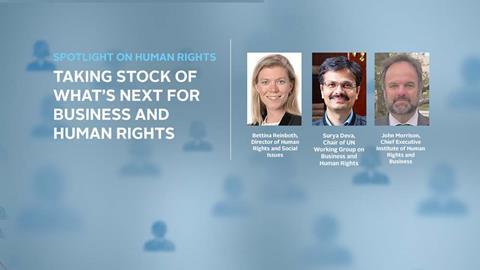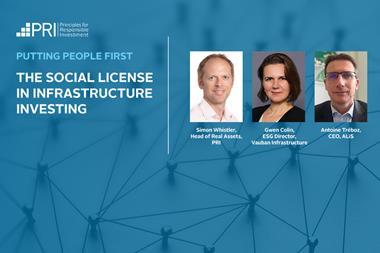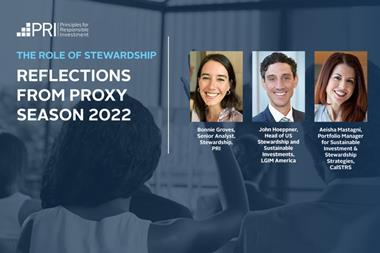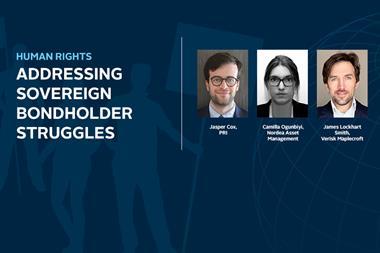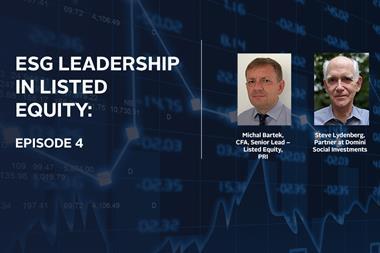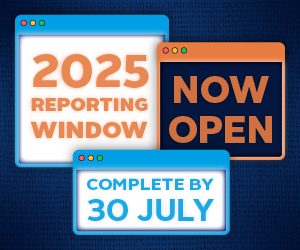Find the podcast transcript here
Spotlight on human rights: Taking stock of what’s next for business and human rights
With Bettina Reinboth, Director of Human rights and social issues, Surya Deva, Chair of UN working group on business and human rights and john morrison, Chief executive Institute of human rights and business
Note: The Principles for Responsible Investment podcast is designed to be heard. If you are unable to do this, this transcript offers an insight into the episode.
Transcripts are generated using a combination of speech recognition software and human transcribers, and may contain the occasional error. Please check the corresponding audio before quoting in print.
Subscribe to the channel via Apple podcasts, Spotify, or wherever you listen to your podcasts.
Bettina Reinboth
Welcome to the PRI podcast. My name is Bettina Reinboth and I’m the Director of human rights and social issues at the PRI. We read about it, hear about it and experience it, ongoing human rights issues, whether it’s in our work places, communities, complex supply chains versus enterprises or nation states. The last decade has seen multiple real-world examples of growing inequality, pervasive gender, and racial discrimination, shrinking civic space, and the human costs of technological developments. And the COVID-19 pandemic has in many ways put human bites in the limelight and shifted investor focus on how companies treat their employees, customers, and suppliers like never before.
I’m delighted to have Surya Deva and John Morrison join me in today’s episode. We will do a quick stock take on what has happened in the business and human rights space, the last decade and where we’ll be heading towards in the next and more importantly, how is it all relevant to investors?
So let’s start with you, Surya. You’re currently the chair of the UN working group on business and human rights, which was established by the UN Human Rights Council in 2011 for the mandate to promote, disseminate and implement the UN Guiding Principles (UNGPs). The UNGPs, as they’re often referred to are turning 10 year this year. What do you take from those 10 years and how they’ve transformed the way we address human rights in the private sector?
Surya Deva
I think it would be a fairly agreeable by all the stakeholders that the UN guiding principles have really changed the landscape of business and human rights, because they are universally acceptable by all the stakeholders, by governments, by businesses, industry, associations, investors, trade unions, civil society, organisations, academy lawyers. I mean, there’s hardly anyone who would say, “oh, we don’t agree with the UN guiding principles or the frameworks”. I think that is a great achievement in itself, in my view. In terms of the implementation and how they’re transforming the land escape, let’s start with the governments. So at this point of time, 26 governments have adopted initial action of ban on business and human rights. These are standalone national action plans, but there are certain countries in which they have inserted a chapter on business and human rights in their generic human rights section plan.
Or we have a country like China, for instance, who don’t have a chapter, but at least a sentence on UN guiding principles inserted in their more, most recent human rights action plan. So that is a significant progress. Many more countries are developing initial action plan. In addition, human rights due diligence, which is part of the pillar two of the UN guiding principles. It has become a lingua franca in this field for companies, for investors, for industry, for sports organisations and anyone doing any kind of business, basically. So we are talking about – this is the starting point for, for any entity, whether a big multinational load is small business. Everyone is expected to respect human rights and how do you do it? Human rights due diligence is a starting point. That is again, a very significant achievement in my view. The last point, perhaps I could mention is that, UN guiding principles are also shaping what others are doing, what laws and policies, governments that are adopting, what practices businesses are adopting, how we are teaching at low schools and businesses schools, how trade unions are doing their collective bargaining, how investors are considering to invest or not to invest. So they are shaping the practices and activities and policies and frameworks of almost all the stakeholders.
Bettina Reinboth
Great. And I really think it’s a segway to bring in you John. You’re the Chief Executive at the Institute for human rights and business, which is a leading international think tank with a mission to make respect for human rights part of everyday business. And just on that point, that Surya mentioned on, you know, how the UNGPs the last 10 years have actually helped shape the work and especially in the business sector, how do you see that this has been shaping what you’ve done essentially. And how have you kind of harnessed the power maybe of the UNGPs in that sense?
John Morrison
Yeah, I agree with Surya that the UNGPs have become the sort of common platform. John Ruggie work - we all think of John who recently left us unfortunately, and how we have his memorial in Harvard this weekend ahead of us. It was a game-changing moment. We’ve also lost David Weissbrodt who was the guy that designed the UN norms, which was an effort in the UN system before that. So this question of what the human rights responsibilities and non-state actors should be in particular business has been with us for hundreds of years, right? And at last, we have some consensus on what the least, the beginning of that compensation should be. But I think there’ve been some trade-offs. Let’s be honest, we focus a lot on human rights, due diligence on prevention and less on human rights impact.
So, you know, there are a lot of things that can be done to lower the risk of human rights abuse, but does that always translate into the impact that people feel on the ground? And I think we see this, I mean, playing out in Myanmar at the moment with telenor, and, you know, it might be better for companies to pull out of risky markets, but is it better for people on the ground that companies do that? So I think that’s one of the trade-offs. And so the impact discussion has gone with the sustainable development goals. The due diligence governance discussion has gone with the UNGPs and there’s still the need for better alignment. And, you know, just come out of COP 26 in Glasgow, this issue of where human rights sits within these existential questions around biodiversity, but also climate change, et cetera. We’re still looking, I think, to see where the UNGPs where the framework fits human rights is largely missing an action in these larger conversations. And to be honest, these are the conversations that boardrooms of companies are having: ESG sustainability, circular economy discussions we have to in the next 10 years be better at placing ourselves within those discussions, I think.
Bettina Reinboth
And I’ll get back to that, you know, where we’re, where we’re heading next and a little bit later on as well, but you mentioned, John, the kind of the unintended consequences, right? And the kind of the prevention versus the reaction as well. And I wanted to loop you back in Surya from the UN working group. I mean, you’ve just done a stock-taking report that came out earlier this year on how the UNGPs actually performed was that, you know, how did you kind of address some of those questions around unintended consequences? I guess, some of these really challenging points in practice and how human rights impacts and actually human rights impacts on the rights holder at the end of the day really happens in practice and that the challenges that you see across actually all governments companies and civil society in addressing that.
John Morrison
Thank you. I think John has raised a very interesting but complex question. So, when we talk about UN guiding principles, they don’t rule out the possibility of this engagement. If you read a pillar two, but that is perhaps the last option that is not the first option, right? So the, the encouragement from the pillar two is that businesses should try to engage, use their leverage in a positive manner, but if you are operating in a very complex environment where you cannot do any meaningful human rights due diligence, or you don’t have any leverage, and you don’t see any possibility of expanding or increasing your leverage to make a positive change, what do you do? Businesses face a very complex dilemma there. If you stay there you will be accused of perhaps complicit in human errors. Some of these could be international crimes.
If you try to withdrawal people will claim, oh, this is irresponsible exit. So I think that is a very complex dilemma, which businesses face. And I think John mentioned Myanmar, but I will say Minamata is just one. You can name many of those situations all across the world, including in democratic setups where governments are putting certain restrictions on businesses which are perhaps in line with the international human rights standards. So working group had to started to consider those issues. Uh, and I personally believe, uh, a lot, I will call the red line approach that there have to be certain red lines where it is just not possible to do business and respect human rights. Let us be honest about it. I mean you can try to operate in many situations and try to manage your adverse impacts, but there are situations where it’s just not possible to respect all human rights, because it is about all human rights.
It is not about that. You can cherry pick “oh, I can respect this human right, which is acceptable to the local government.” That is not what the UNGP is. They talking about you should be respecting all internationally recognised human rights. Now, of course you can give some priority and all that, but that is separate question. If a business has no chance, no possibility, even in the near future to respect all human rights, that rages illegitimately question, should you be going there? And if you have gone there, what should be your responsible exit strategy? If you don’t see any possibility of collective action or increasing your leverage, I think I will stop at this. And probably John may have something else to it.
John Morrison
Yeah. I agree with that. I mean, I think I’ll take Myanmar as an example, I mean, there’s a lack of an amber light. So everyone rushed into Myanmar in 2012, 2013, governments encouraged them to do that. Governments lifted sanctions. Everybody was on a charm offensive where now, you know, the light turned green and the light is now going red again. And again, we don’t have an amber light in between the, so it’s the lack of that sort of, and that amber light should be the norm, right. You know, enhanced due diligence, understanding what our impacts and risks are being transparent about those things that should be normal business behaviour. And so now we’re beginning to see governments, France, Norway, and now Germany mandating this. So that, I hope in the years to come this amber light, if you like becomes the norm our expectation of business.
But one thing I think we not talked about enough over the past 10 years, and we did talk about it before the UNGP is a bit. This issue of, you know, businesses are just not equivalent, right? If you’re performing a public good in a country like a life-saving drug, or you’re involved in the provision of water or housing, et cetera, for me, that’s not the same as if you’re going in there and selling a brand of fizzy drink, right? You can live without fizzy drinks. There’s a question as to whether the private sector should be involved in the delivery and fulfilment of economic, social, cultural rights. I mean, that’s, that is a legitimate question. But if you, if you, if you answer that question in the affirmative, as we did around the right to water 10 years ago, that there is a role for the private sector, some role, as long as governments maintain their duty, then I think the question of withdrawal and ceasing to provide that, so Telenor providing telecommunications in Myanmar for me, is different than a company they’re selling consumer goods because that telephone network is still going to be there when the company leaves somebody else will be maybe a less responsible actor or a much less responsible actor will be providing that service.
So I think and I remember us talking about this in the context of Sudan 15 years ago, et cetera, there is this issue of public goods and the role of business within the provision of public goods, which I think is fits within new UNGPs, but there’s a conversation maybe that we should be having more of because it’s becoming more and more relevant unfortunately as we look around the world at the moment.
Bettina Reinboth
I think that’s a really good point. And I think one of the aspects, I guess, as well as drawing in that kind of time horizon, right, when we’re talking about some of these businesses operating in here, and I mean, that’s what we see from, from the investment community of they have a longer-term time horizon. We’re talking about 20, 30 years down the line, right. In terms of how our human rights respecting human rights are relevant to the pensions that we, you and me want to kind of pull out in 20, 30, 40 years time. Um, and I think what I, what I want to kind of delve into a little bit more, and actually maybe hear your thoughts, Surya, on that point of, okay, the kind of the blurry lines between business responsibility, governments, you know, John, you’re mentioning a lot about the public goods.
Is there a role for their business to come in? How does this change also across different geographies, across different political setups as well? Is that something that you’re addressing in the UN working group going kind of looking forward, Surya, in terms of, you know, the UNGPs of clarified it with the three pillars that you have one pillar for the governments, one pillar for that business respect is to respond to this, but some of these may be emerging challenges around where those lines aren’t always as clear, right? They tend to be quite blurry. Is that something you’re looking into?
Surya Deva
I think I want a good group is I’m considering now to provide some more guidance about those complex environments - what we are tentatively calling as the red line guidance. So what does a responsible exit means in a particular context, or are there certain situations in which businesses should not enter the market at all? Whether it is a provision of public goods or otherwise, I mean going back to John’s point about provision of public goods, that raises an interesting dynamic about this whole idea of the role of estates versus the private sector because whenever states outsource their services to the private sector, there is plenty of evidence that that is not always the most fruitful way to protect human rights. So, I think it could be some kind of rebalancing that needs to be done because the governments are completely giving it away to the private sector.
Okay. We divest, you come into the market, you provide public transport, you provide health, you take care of the education, you provide telecommunication, all these are public goods, right? But the question is then “are those companies going to respect human rights”? Will those services be affordable? Will they be offered in a non-discriminatory manner? And what is the oversight here exercised by the state? And I think that’s where the pillar one comes into picture, right? The government should be exercising that oversight and monitoring whenever they are going for this kind of outsourcing of public services with the private sector. In addition, I think the key question that we should be considering going forward in my view is that UNGPs were not meant to be solving each and every governance challenge in the world. They were supposed to be the starting point. And they talk about - they protect, respect and remedy as a framework. But the question that I think we may need to ask going forward, especially in relation to the post pandemic world, or we are still in the pandemic situation, in fact, or the realisation of sustainable development goals, is this, “do businesses also need to fulfil human rights or merely respecting human rights is going to be sufficient?”
I think that is a question that that is also, uh, what considering going forward in my view. And I think that’s where the role of the governments and this intersection of the government and the private sector is going to become quite critical in my view.
John Morrison
I think we’ll see partly as a result of COVID as well the state’s reclaiming the marketplace. I think we’ll see this around just transition and climate change as well, but there’ll, there’ll be a greater need for industrial policy, um, greater control of the marketplace, the rules of the market, there’ll be less free trade. There’ll be more tariffs. I mean, this is where we’re moving in the next five to 10 years. I think free trade has brought in benefits as well as some very negative impacts on human rights. But it’s not as simple as saying that actually public goods should be provided by governments because in effect, that would be the end of Facebook, WhatsApp, Signal. You know, a lot of the technologies upon which human rights defenders absolutely rely, encrypted services, because governments would say, well, provision of the internet is a public good, right?
So we should control and that any private sector company helping us provide this public good should, should lay its, uh, doors open to us. And the control of government. Now Facebook is 15 years late to the human rights conversation, but they’ve now at least come to the human rights conversation, but you know what we don’t want to do. I don’t think we want to do it’s nationalised Facebook, right? I mean social media companies, because of the very important role they play in, in human rights and holding states to account outside of the context of business and human rights. So I think it’s way more complex than saying that basically public goods should just be provided by governments full stop, because that isn’t always going to provide the best human rights outcomes in my opinion.
Surya Deva
Well, I think I was not suggesting perhaps John’s point is a valid points. I was not suggesting that it should be the only the government that should be providing public services. But my point is that what is happening or what has been happening in the last couple of decades is that the governments have completely left those public goods and public services to provide by the private sector. And that means that in many situations, those services are being provided inconsistent with the human rights norms. So, I think it’s not either or government could still have a space to provide health services and they could be a co-existence for the role of the private sector in providing health services. So, it’s not either, or, but for instance, Facebook as well, right, but for Facebook, you need access to internet. I think we can assume that everyone is assuming that we have access to internet, but there are millions of people who have no access to internet.
They are a people who travel seven, eight hours to access internet, even this point of time, 2021. So those people will not have access to Facebook. So this illusion that the Facebook ishelping everyone in the world is also not correct. Right? So I think the picture is much, much complex. And I think that is where in my view, in the next decade, going forward, we need to go beyond UN guiding principles to fix the governance challenges in my view, because UN GPS, but not a simple silver bullet, they have already a starting point. They provided a framework to guide our thinking. I see them more like a UDHR, but the human rights norms did not stop at the adoption of the UDHR. They kept on evolving. And I think that is where we should be thinking that the business and human rights does not equals to you in guiding principles. We are two different things. Yeah. Such I think there’s a powerful.
Bettina Reinboth
Powerful action end notes as well. And John, we need to rebalance it. We need to not use the UNGPs too, or not think about the UN GPS to fix old governance challenges. What are your kind of reflections on what’s coming up next in addition to, you know, the change of how we’re maybe shifting our capital systems, as well as thinking about this?
John Morrison
No, absolutely. I mean, I’ve never been a UNGP fundamentalists. I mean, I think they’ve UNGPs has been an invaluable contribution. It’s not even the end of the business and human rights conversation because I think there’s this question about human rights impact and the fulfilment of rights, that that takes us a bit beyond UNGPs. But the fundamental questions around governance ESG, the transitions that the world needs to go through, and then even more fundamental question about circular economies. Well, what is it that we’re aiming for by 2050? Because there are visions of 2050 and beyond that have less human rights, right. Less human autonomy, some of the smart city thinking that’s going on in the world is net zero, but it’s also diminished human rights and greater control through technology, et cetera. So, we really do need to think about not just the transitions, but we need to think about the end state that we’re, you know, there’s never been a time in human history where humans have fully respected human rights or lived within planetary boundaries. Right? Some indigenous peoples, I think is the exception, but generally that’s not been the case. So what is it that we’re looking to sacrifice in human nature to be a sustainable species? So, you know and then maybe we have to because of biodiversity and some of the other challenges, but I, you know worry at the moment that a little bit of green utopian thinking is also one of the challenges we have when it comes to human rights and human agency and human voice. So, I think, not just about how we get to 2050, but what kind of world, what, what is the circular economy from 2050 and beyond? I love us to be talking more about that over the decade ahead.
Bettina Reinboth
Thank you so much for your insights Surya and John? We’ve heard the broader view and two key ways investors can address human rights is through their stewardship of investees and dialogue with policy makers and other key stakeholders. Recognising this, we will launch a new initiative to facilitate greater investor collaboration on stewardship to address a broad range of human rights issues. The PRI will support a range of stewardship activities, including investor engagement companies, and policy makers, and other key stakeholders to further respect the human rights. This initiative we’ll formally kick off in 2022, but from the 10th of December, we’d like to hear from PRI signatories who are interested in taking part, and you can find more information on our website and lastly, stay tuned for our next podcast later this week with Fiona Reynolds, which will be her farewell. If you liked this episode, please do rate and subscribe. And if you’d like more information about responsible investment, go to unpri.org.


